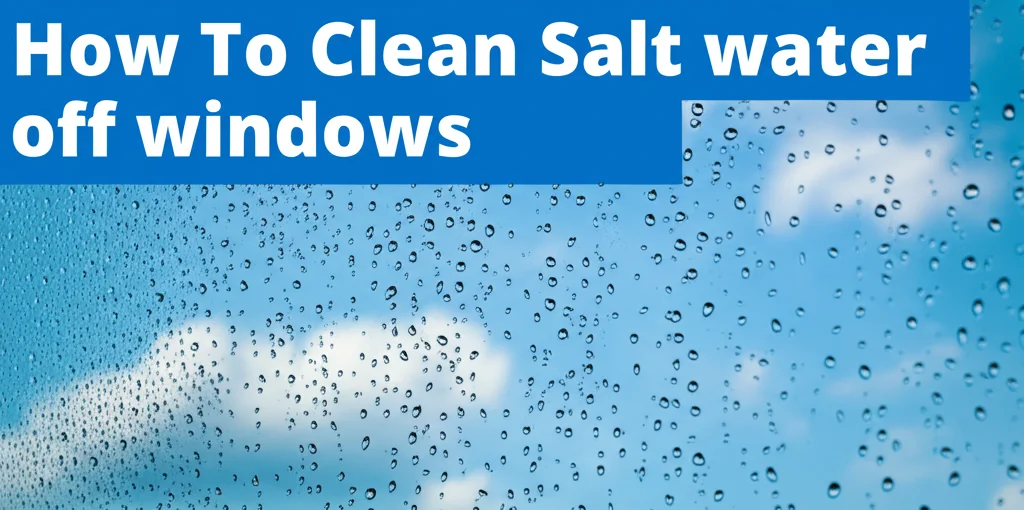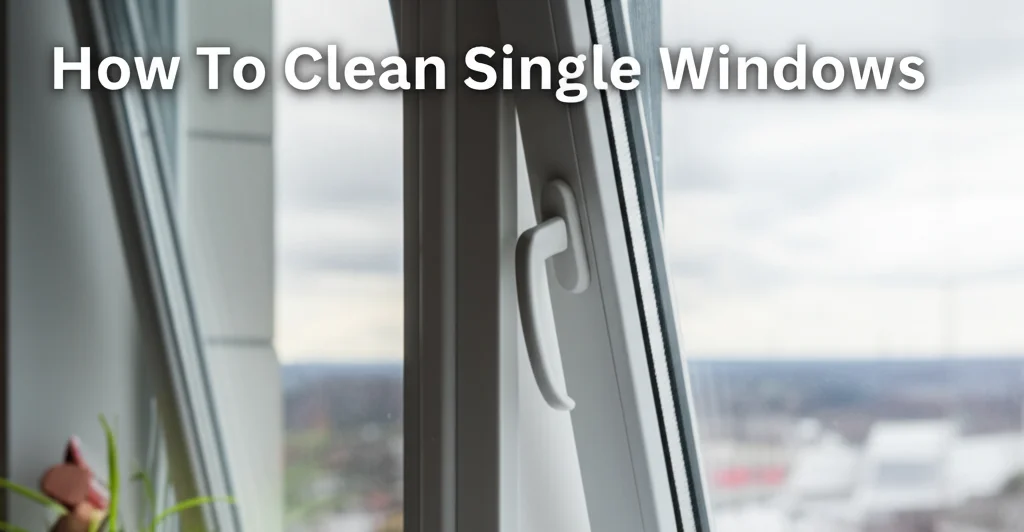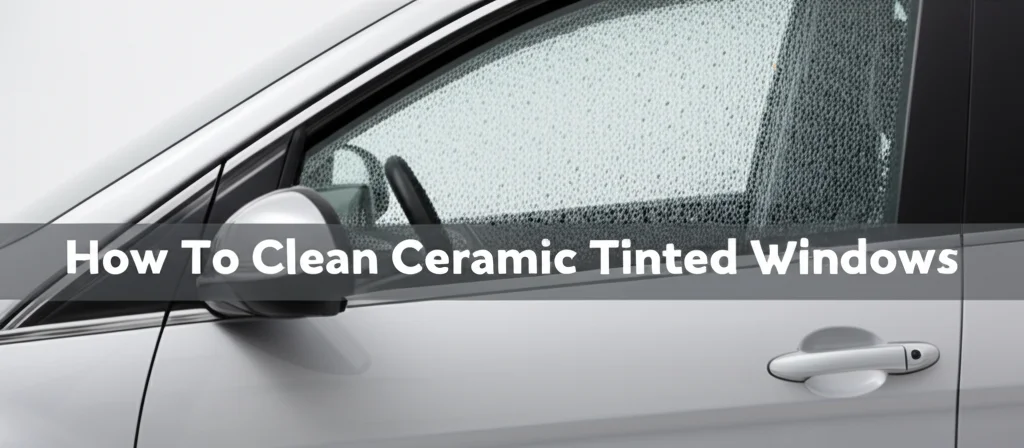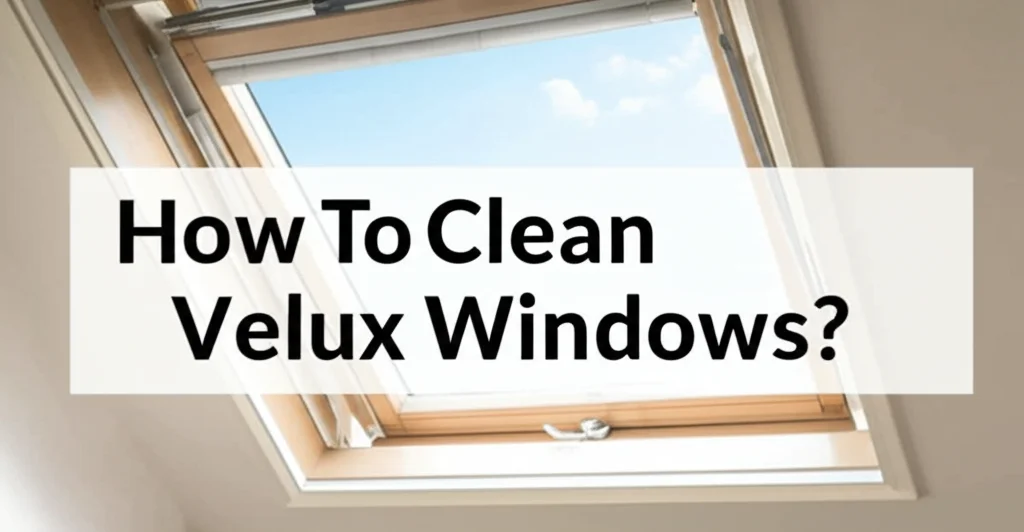· Home Cleaning · 7 min read
how to clean salt water off windows

How to Clean Salt Water Off Windows: A Simple Guide
Have you ever noticed a white, crusty residue on your windows after a storm or a coastal breeze? That’s salt water, and it can be a real pain to remove. Salt is corrosive and, if left unchecked, can actually damage your window glass and frames over time. This article will show you exactly how to clean salt water off windows, restoring their clarity and protecting them from long-term damage. We’ll cover everything from quick rinses to more thorough cleaning methods, ensuring your windows sparkle. Let’s dive in and get those windows looking their best!
Quick Answer:
To clean salt water off windows, start with a thorough rinse using plain water to remove loose salt. Then, mix a solution of white vinegar and water (1:1 ratio) and use a microfiber cloth to wipe away remaining residue. Finish by drying with a clean, dry microfiber cloth for a streak-free shine.
Takeaway:
- Rinse first to remove loose salt.
- Use a vinegar and water solution for cleaning.
- Dry with a microfiber cloth for a streak-free finish.
Why Salt Water is Harmful to Windows
Salt water isn’t just unsightly; it’s genuinely damaging. The salt crystals act like tiny abrasives, scratching the glass surface with every gust of wind or splash of waves. Over time, these scratches can dull the glass, making it appear cloudy. Beyond the glass itself, salt can corrode metal window frames, leading to rust and weakening the structure. This is especially true for windows near the ocean, where salt spray is a constant presence. Regular cleaning isn’t just about aesthetics; it’s about protecting your investment and extending the life of your windows.
The Best Tools for Cleaning Salt Water Off Windows
Before you start, gathering the right tools will make the job much easier. You don’t need anything fancy, but having the correct supplies will save you time and effort. Here’s a list of what you’ll need:
- Garden Hose with a Spray Nozzle: For the initial rinse.
- Two Buckets: One for your cleaning solution, one for rinsing.
- White Vinegar: A natural and effective cleaning agent.
- Dish Soap (Mild): A small amount can boost cleaning power.
- Microfiber Cloths: These are essential for streak-free cleaning. Avoid paper towels, as they can leave lint.
- Squeegee (Optional): Helpful for larger windows.
- Soft Brush (Optional): For stubborn salt buildup.
- Rubber Gloves: To protect your hands.
Step-by-Step Guide: Cleaning Salt Water Off Windows
Now that you have your tools, let’s get cleaning! This method is effective for most windows and levels of salt buildup.
- Rinse Away Loose Salt: Begin by thoroughly rinsing the windows with plain water. Use a garden hose with a spray nozzle to dislodge as much loose salt as possible. Start from the top and work your way down. This initial rinse is crucial to prevent scratching during the cleaning process.
- Prepare Your Cleaning Solution: In a bucket, mix equal parts white vinegar and water. You can add a tiny drop of mild dish soap if the salt buildup is particularly stubborn. Don’t overdo the soap, as it can leave a residue.
- Apply the Cleaning Solution: Dip a clean microfiber cloth into the vinegar solution and wring out the excess. Gently wipe the window surface, applying even pressure. Work in sections, overlapping slightly to ensure complete coverage.
- Scrub Stubborn Areas (If Needed): If you encounter areas with heavy salt buildup, use a soft brush to gently scrub the residue. Be careful not to apply too much pressure, as this could scratch the glass.
- Rinse Again: Using clean water, rinse the windows thoroughly to remove all traces of the cleaning solution. Again, start from the top and work your way down.
- Dry the Windows: This is where microfiber cloths really shine. Use a clean, dry microfiber cloth to wipe the windows dry, working in a circular motion. For larger windows, a squeegee can be used to remove excess water before drying with a cloth. This prevents streaks.
Dealing with Extremely Stubborn Salt Deposits
Sometimes, despite your best efforts, salt deposits can be incredibly stubborn. Here are a few tricks to tackle those tough spots:
- Lemon Juice: Lemon juice is a natural acid that can help dissolve salt. Apply lemon juice directly to the stubborn areas, let it sit for a few minutes, then scrub gently with a soft brush.
- Baking Soda Paste: Mix baking soda with a small amount of water to create a paste. Apply the paste to the salt deposits, let it sit for 5-10 minutes, then scrub gently.
- Commercial Window Cleaners: If natural methods aren’t cutting it, consider using a commercial window cleaner specifically designed for removing hard water stains and mineral deposits. Always follow the manufacturer’s instructions. You can find more information on choosing the right cleaner at https://www.beacleaner.com/how-to-clean-luxury-vinyl-plank-flooring/.
Preventing Salt Water Buildup on Your Windows
Prevention is always better than cure. Here are a few tips to minimize salt water buildup on your windows:
- Regular Rinsing: If you live near the ocean, make it a habit to rinse your windows with fresh water every few weeks, even if they don’t look particularly dirty.
- Protective Coatings: Consider applying a hydrophobic coating to your windows. These coatings repel water and dirt, making it harder for salt to adhere.
- Window Screens: Window screens can help block some of the salt spray, reducing the amount that reaches your windows.
- Proper Ventilation: Ensure good ventilation around your windows to prevent moisture buildup, which can exacerbate salt corrosion.
Cleaning Different Types of Window Frames
The type of window frame you have will influence how you clean around it. Here’s a quick guide:
- Wood Frames: Use a mild cleaning solution and avoid excessive water, as wood can warp or rot.
- Vinyl Frames: Vinyl is relatively durable and can withstand more aggressive cleaning. However, avoid abrasive cleaners that could scratch the surface.
- Aluminum Frames: Aluminum is also durable, but it can corrode over time if exposed to salt. Rinse thoroughly after cleaning.
- Metal Frames: Metal frames are susceptible to rust. Clean regularly and apply a protective coating to prevent corrosion. If you’re dealing with tough stains on other surfaces, you might find this article helpful: https://www.beacleaner.com/how-to-clean-floor-grout-without-scrubbing/.
FAQ: Your Salt Water Window Cleaning Questions Answered
- How often should I clean salt water off my windows? If you live near the ocean, aim to clean your windows at least once a month. In less salty environments, every few months should suffice.
- Can I use bleach to clean salt water off windows? Avoid using bleach, as it can damage the glass and surrounding materials. Vinegar is a safer and more effective alternative.
- Will hard water also leave residue on my windows? Yes, hard water can leave similar mineral deposits as salt water. The same cleaning methods apply.
- What’s the best way to dry windows to avoid streaks? Using clean, dry microfiber cloths is the key. Wipe in a circular motion and ensure the cloth is completely dry.
Conclusion: Keep Your Windows Sparkling and Protected
Cleaning salt water off windows is a simple but important task. By following these steps, you can restore your windows’ clarity and protect them from long-term damage. Remember to rinse regularly, use a vinegar-based cleaning solution, and dry with a microfiber cloth. Don’t let salt buildup dull your view – a little effort can go a long way in keeping your windows sparkling and extending their lifespan. Now that you know how to clean salt water off windows, you can enjoy a clear view of the world around you! For other cleaning challenges around your home, explore our other helpful guides, like this one on removing tough carpet stains: https://www.beacleaner.com/how-to-get-motor-oil-out-of-carpet/.




